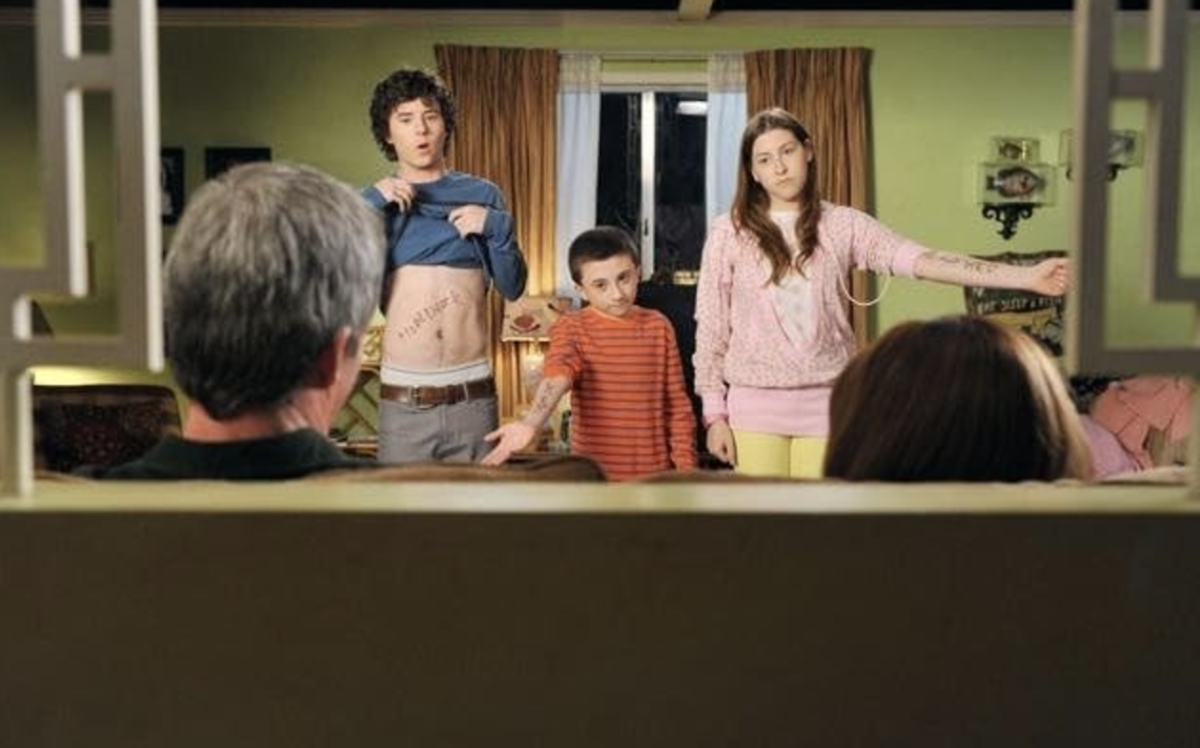
Editor’s Note: The following review contains spoilers for the fifth season premiere of “The Walking Dead.”
For a show that shakes up its format each season, “The Walking Dead” adheres to a surprisingly rigid pattern. Following an amazing promo that drops late summer, it erupts onto the small screen in October with a climactic premiere sustained by cinematic effects and a pivot in a new direction. Then, like the titular walkers, wandering dialogue rises from the dead and sinks the show to mediocrity by midseason.
True to form, season five kicks off with a bang. Scott M. Gimple, the showrunner and occasional writer, penned last Sunday’s premiere, which picks up right after last year’s finale. It closed out a dull season with one of the show’s best episodes, “A,” and marooned Rick’s (Andrew Lincoln) group in the train car of a cannibalistic settlement. It was a promising finale. Finally out of the prison and off of the road, the program suggested it was about to determine a purpose four years in the making.
Gimple, who has written most of “The Walking Dead’s” finest hours, opens this season with an epic assault on Terminus. The opening shots of six men leaning over a trough turn into the most grisly and uncomfortable sequence yet. Expressionless, two men bash their heads and slit their throats to prepare them as food. Brutality is no stranger to “The Walking Dead.” It’s the apathy and placidity with which these Terminians slaughter other humans that unnerves.
Meanwhile, Rick’s personality continues to skitter around like water on a skillet. At first a reluctant leader, then a dictator and finally a farmer, the former sheriff’s deputy mutates into a ruthless warrior by the premiere’s end. We saw the foreshadowing of this last year when he ripped out a man’s throat. Last Sunday, in a sequence that eerily echoes the Governor’s (David Morrissey) roadside slaughter, Rick guns down an entire group of Terminians who are distracted by walkers.
Since the first season, the show has revolved around Rick’s warping morality in the apocalypse. Perhaps that has been “The Walking Dead’s” Achilles’s heel. While a strong character, mostly because of Lincoln’s stalwart performance, Rick has never been “The Walking Dead’s” most interesting. Others, like Carol (Melissa McBride), Daryl (Norman Reedus) and Hershel (Scott Wilson) are the glue that keeps us stuck to our television screens.
The premiere follows suit. Although Rick’s escape thrills at every turn, Carol’s complete dismantling of Terminus binds the episode together. Single-handedly, she sets off the show’s most epic explosions to date and shrewdly masks her entrance to Terminus with a herd of walkers. Without Carol, the show would be far less interesting.
Carol also represents the best of the show’s writing. Bolstered by McBride’s excellent performance, Carol transforms from an abused victim to a pragmatic actor. When she kills Lizzie in “The Grove,” nothing of the helpless survivor from season one remains.
The writing has seen success with Carol, but it still falls short overall of its popular peers like “Game of Thrones.” Both programs contain rousing action and meditative dialogue, but whereas “Walking Dead” excels in only the action sequences, “Thrones” can slow down without getting bogged down.
Five seasons in, “The Walking Dead” has yet to find a team of writers who can discuss the world’s philosophy effectively. Nearly every time characters find themselves in a room without a gun or without a walker, that room starts to feel very claustrophobic. Chances are, you’ve already heard what you’re about to hear.
Tyreese’s (Chad Coleman) subplot exemplifies the writing’s weaknesses. Trapped in a remote cabin with a Terminus scout and Judith, the narrative goes nowhere fast. Tyreese hears how his kindness will get him killed, how Judith is like an anchor without a boat and how ruthlessness equals survival. The conversation is akin to one we heard between Daryl and Beth (Emily Kinney) last year, before Rick excommunicates Carol, and between Rick and Shane (Jon Bernthal) in almost every episode in season two. The scripts need some new material.
You might wonder why the writers haven’t used new material. After five years of dialogue contemplating the same philosophical conundrums, you’d think the writers would be willing to explore fresh ideas. Instead, they seem content to count on the zombie decapitations to draw weekly viewers.
The late addition of Sergeant Abraham Ford (Michael Cudlitz) and Dr. Eugene Porter (Josh McDermitt) holds the key to success–Porter knows how to cure the virus. The revelation hands “The Walking Dead” an integral purpose.
The premiere soars because of the brilliant execution of Terminus’s downfall, courtesy of director Greg Nicotero, but not every episode can rely on the same tactics. So to the writers I say, leave behind the tired dialogue. If you do, “The Walking Dead” will be more alive than ever.
Alexander Frail can be reached at [email protected].



















Alex • Oct 17, 2014 at 6:34 pm
Ely, I definitely appreciate your opinion and that’s what’s awesome about television, we can all have different views that are valid. As you notice, I criticize their dependency on zombie decapitations, so I don’t prefer killing zombies all the time as you say. I love the characters as well, but wish the writers would have them discuss new topics (i.e. Not the fact that brutality equals survival yet again). Perhaps something about their pasts, etc. So no, I absolutely don’t think you can only enjoy WD because of the killing, since some scenes are too brutal.
As to GoT, about writers having it made, you could also say the WD writers do as well. They have numerous comic volumes to draw upon, each with dense narratives. I agree with you entirely that they are different shows, so perhaps it’s not a perfect analogy. They do, however, attract similar audiences. Additionally, my point was that GoT often slows it’s pace, but doesn’t always focus on the same topic. It delves deeply into the story’s history, something WD has neglected by comparison.
Finally, you’re definitely right that we repeat conversations in real life and if a group remained in a room too long, it would feel claustrophobic. However, my point was that this effect wasn’t because of an unsatisfactory amount of killing and violence, but because of repeated writing techniques. I want more dialogue, as you do. I just ask they put away the “tired” dialogue; repetition is natural in life, but in a tv show, it just seems like lazy writing.
Ely • Oct 16, 2014 at 2:53 pm
As a huge fan of Walking Dead and GOT, these are two very different shows. I truly enjoy the character development of Walking Dead. The writers are doing it right by showing a realistic portrayal of people going through ups and downs while fighting for their lives. Its very realistic. It can’t be all about fighting zombies ALL the time. Fans watch because they love the characters, period. I certainly don’t watch the show because I want to see brains and blood. I’m alot more refined than that.
Knowing that Walking Dead’s success is due mostly in part because of its characters I’m confused by your statement here: “Walking Dead” excels in only the action sequences, “Thrones” can slow down without getting bogged down.” Are you saying that you only enjoy Walking Dead because of the killing?
Game of Thrones is on a constant high and this is because of the way it was written – to intrigue. Everything is in the book. These writers got it made. All the twists and turns have to keep you guessing. With its many characters and history, its hard to keep track of everything and this is why people have to pay attention. I mean, its hard to keep up with the books!
Guess what? If I found myself in a room alone with you or other people, chances are we will definitely feel claustrophobic, and chances are we are definitely going to say something stupid. Something we have said before. Why? Because that’s normal. Because most people repeat themselves all the time which gets pretty tiring. Get rid of the “tired dialogue” and you’re asking for trouble.